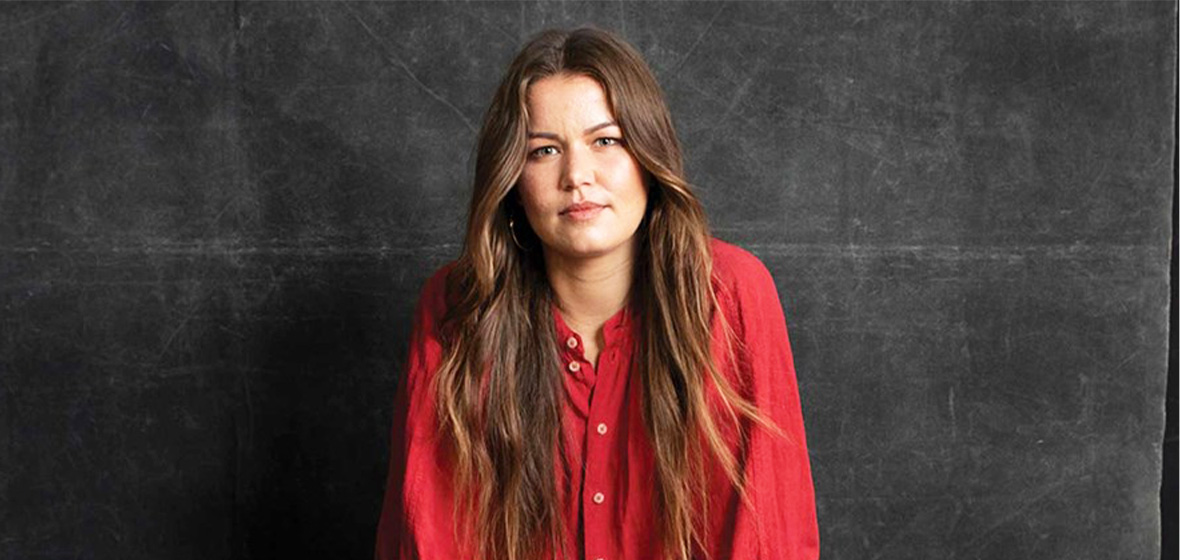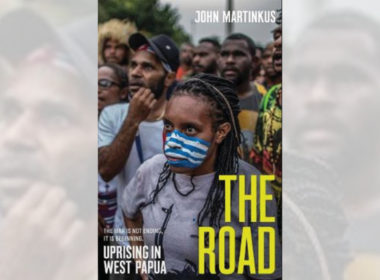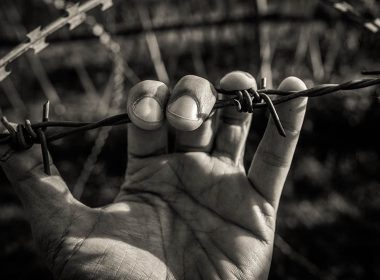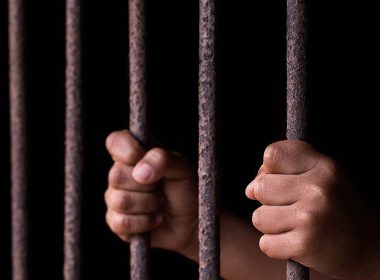Vanessa Turnbull-Roberts reflects on her new appointment as the inaugural Aboriginal and Torres Strait Islander Children and Young People Commissioner for the Australian Capital Territory.
Lawyer and Fulbright Scholar Vanessa Turnbull-Roberts has been appointed the inaugural Aboriginal and Torres Strait Islander Children and Young People Commissioner for the Australian Capital Territory (ACT).
It is a role befitting Turnbull-Roberts, whose experience and qualifications are unique. The proud Bundjalung Widubul-Wiabul woman, who has degrees in both law and social work, was recognised with an Australian Human Rights Medal in 2019. Her current research as a Fulbright Scholar is focused on unveiling the intersections of human rights, child removal and the implications of forcible removal, ensuring that First Nations child Survivors and those impacted are heard, whilst providing solutions towards ending child removal.
Vanessa believes in empowering communities, not empowering the systems conducting the removal and criminalising young people. She believes there are more appropriate and cost-effective solutions that best serve the future, healing, and wellbeing of both Indigenous and Non-Indigenous people impacted by these intersecting systems.
‘Having community back me cemented it’
Turnbull-Roberts tells LSJ, “I learned about the newly established Commissioner role when I was both invited, and encouraged, to apply by my respected peers. I had two very important conversations with well-respected people in the legal space that changed my perspective on doing so post-invitation.
“First, I called my dear friend who is a judge in the Family Court, Dr Jacoba Brasch, and asked her if I was out of my depth and if pursuing this role was a crazy idea. To my surprise, she said, ‘Absolutely not. You should absolutely move forward with this.’ This conversation gave me a boost of confidence and made me believe that I had what it takes to apply.
“Next, I spoke to a senior partner at Gilbert + Tobin, Anne Cregan, who assured me this role was made for me and encouraged me to go for it. The words of support reinforced my belief that I should take the chance and be open to this invitation.”
The support of community, in addition to that of legal professionals, was vital to Turnbull-Roberts’ readiness to accept the role.
“These very important conversations with other respected professionals in the legal and community space provided me with the courage and reassurance I needed. I realised that even if I doubted myself initially, the support and belief of others can make a significant difference. So, I took a leap of faith and community believed in this process, as it was fundamentally inclusive of both a community and formal panel.
“Having community back me and believe in the ethics I present cemented it for me. It is the children and young people that I am accountable to, and cultural protocol for me to have the blessing of kin to do this is crucial.”
‘It is the children and young people that I am accountable to, and cultural protocol for me to have the blessing of kin to do this is crucial.’
Turnbull-Roberts takes on the independent and statutory position for a five-year term beginning on 26 February 2024. In the interim, Barbara Causon PSM is acting in the role. The role was established in consultation with First Nations people consequent to the ACT Government’s assurance that it would implement the 2019 Our Booris, Our Way report recommendations in full.
Finding ways to safely remain
Announced in 2017 by the ACT Government, the Our Booris, Our Way project was a systemic review into the over-representation of Aboriginal and Torres Strait Islander children in the child protection system. The goal was to identify ways to enable Aboriginal and Torres Strait Islander children to safely remain with their parents and families.
The review was entirely co-designed and led by Aboriginal and Torres Strait Islander people. Over two years, 28 recommendations and 8 sub-recommendations were provided to government, culminating in the final report in December 2019. In June 2020, the Our Booris, Our Way Implementation Oversight Committee was established, chaired by Natalie Brown.
One of the Closing The Gap targets of the Australian Government Productivity Commission is to reduce the rate of overrepresentation of Aboriginal and Torres Strait Islander children (aged 0–17 years) in out-of-home care by 45 per cent by 2031. That target is not looking positive at present.
In 2022, the national rate of Aboriginal and Torres Strait Islander children aged 0–17 years in out-of-home care was 56.8 per 1000 children in the population. That was down from 2021 (57.6 per 1000 children) but an increase from 54.2 per 1000 children in 2019, when the target was established.
Turnbull-Roberts says, “I believe the Commissioner has a responsibility to work with the principles of transparency, advocacy, and ensure that the role is centred around those I am representing: Aboriginal and Torres Strait Islander children and young people.”
For the long term
Turnbull-Roberts notes that her independent statutory role includes, but is not limited to, the following powers and decisions:
- Providing individual and systemic advocacy for Aboriginal and Torres Strait Islander children and young people.
- Intervening on behalf of Aboriginal and Torres Strait Islander children and young people in relation to decisions that will affect their rights or interests.
- Inquiring into matters relating to the rights, development, safety, and wellbeing of Aboriginal and Torres Strait Islander young people.
- Advising the government about policy, services, and other matters affecting Aboriginal and Torres Strait Islander children and young people and their families.
She is determined that her work play a part in a broader, long-term approach to sustainable improvements.
“I aim to set this role up not just for my five-year appointment, but for the long-term vision,” she explains.
“This means creating sustainable outcomes that lay the foundation for the future, whilst fundamentally addressing the urgent crises we are in now. As the inaugural Commissioner, how we build on this foundation matters, as well as ensuring that future Commissioners build upon it. Our people have always been critical visionaries and thinkers ahead; how we plan for the next [Commissioner] is important.
‘the long-term vision … means creating sustainable outcomes that lay the foundation for the future, whilst fundamentally addressing the urgent crises we are in now’
“The Our Booris Our Way Report is a fundamental co-design report,” Turnbull-Roberts continues. “And I will work closely with the community to implement the recommendations outlined. My door will always be open to the people I represent, and this role, whilst I sit in it, will be alongside community.”
An open invitation
As Commissioner, Turnbull-Roberts is aware that her work must inform and include members of the community who are responsible for the wellbeing and protection of First Nations children and youth.
She says, “My role will include an open invitation to those that may not know about this crisis we are in, and those that may feel well intentioned in their work, but equally may be part of the issue of child removal. I believe we must provide the opportunity for others to learn and become engaged on the issues that are affecting First Nations children and young people, especially concerns such as child removal, incarceration, and suicide.
“These issues are not First Nations issues, but rather a call for community to reflect on how we provide mutual aid, understanding and systemic change to shift this. The onus does not lie on community, but on all those who come to the table, and with that table I hope to build a space that says everyone has a seat so long as it’s towards the safety and wellbeing of our people. To actively practise self-determination, it must be empowered by community, but not burdened onto community.”
Turnbull-Roberts explains that her role will also consider crucial reports from the past few decades, and consultation with community members who tirelessly advocate for change.
She clarifies, “We know that these issues are not new, and it is alarming to see where we currently stand. The work that has been done previously surrounding the rights of children and the implications of child protection services, through to the pipeline of incarceration, cannot go unrecognised.
“The solutions: elders, Survivors and expert researchers have presented what we need to do. The 1997 National Bringing Them Home Report and the 1987 Royal Commission into Aboriginal Deaths in Custody will be crucial reports to reference in my role, followed by the recent alarming findings presented. The lives and safety of Aboriginal and Torres Strait Islander children and young people matter, and ensuring self-determination and being free from racism is crucial for our children and young people.”
Empowerment, not penalties
The most common forms of abuse cited as reasons for children being put in out-of-home care, Turnbull-Roberts says, are emotional abuse and neglect. There is an urgent need to coordinate services and systems to address issues of employment, housing and financial support, to ensure parents and expecting parents have the resources to look after a child and themselves.
She says, “As a Survivor, lawyer, advocate and now Commissioner, I have had the opportunity to work directly with families impacted by statutory child protection services. I strongly believe that addressing the root causes of abuse and neglect is crucial in ensuring the wellbeing of children and parents alike.
Turnbull-Roberts continues: “Addressing issues of employment, housing, and financial support requires a collaborative approach, with community development being ethically centred. I hope through this role we can actively work with other services and systems to develop initiatives aimed at providing resources to parents and expecting parents.
“Often, we see more resources provided when the traumatic experience of removal has occurred; however, if you shift these resources to the early stages of identified need, you remove the process of punitive responses, and can support families. As a Survivor I can reflect on my very own community’s needs, my family’s needs, but instead we often saw removals take place and paternalism disempowering our people.”
‘if you shift … resources to the early stages of identified need, you remove the process of punitive responses, and can support families’
Turnbull-Roberts explains that this includes partnering with employment agencies to assist parents in finding stable employment, collaborating with housing organisations to secure safe and affordable housing, and advocating for increased financial support options for families.
“This also means recognising the reasons why some people won’t be able to work. It is crucial we do not assume that because a parent is not working, or undertaking the duties society can place on one, that this does not [exclude] their ability to care take and love their children. Issues of poverty, mental health, and other concerns do not mean inability to parent, but they do require us as a society to take care of parents and children, and support where we can.
“We urgently need to allow people to be empowered, especially parents, community and kin. It is easy to remove their decision making and not involve them through the big decisions that impact their child and young person. This is history repeating acts of disempowerment, and silencing. We need to ensure parents who have their children removed or at risk of removal are informed of their rights.”
She is adamant that the existing approach – penalties and punishment – is not working, and this has been clearly established over a long period.
“I firmly believe that punitive responses should not be the primary solution in addressing issues of abuse and neglect. Instead, my focus has been on working with the community to develop and implement preventative strategies that promote positive parenting and ensure families are equipped with the necessary support systems.
“This may involve providing access to parenting classes, mental health services, substance abuse treatment programs, and other resources that can contribute to a healthy family environment. It further means looking to strengths-based approaches, and not dehumanising over-servicing. It means allowing families to be empowered. Often the expectations placed on parents are a much greater burden than being effective for the long-term best interest of the child, and family and their overall support.”
Working hand in hand
An elemental aspect of Roberts-Turnbull’s role is working with the many professionals who are a central part of the child protection and justice system.
“Part of my commitment to continuing my efforts in shifting resources towards proactive measures that strengthen families and promote their well-being involves identifying the role of judges and those involved in the administrative processes of child removal. Providing education and supports to those making critical decisions on our children and young people is also crucial.
“By working hand in hand with various stakeholders, including government agencies, community organisations, the administrative processes such as judges and their role and service providers, I am dedicated to creating a support network that empowers parents and expecting parents to provide the best care for their children and themselves.”
Turnbull-Roberts was forcibly removed from her father’s care at the age of 10 and placed in out-of-home care.
She tells LSJ, “As an adult, I have come to learn that the method of police officers arriving late at night or in the early hours of the morning to remove First Nations children from their homes was unfortunately not uncommon. I have also learned the form of policing is not necessarily [conducted by] the police itself, but through other [parties who] act as surveillance, and conduct the removal also. Quite often I see the way the criminal justice system is interconnected with the child removal system. This practice, which causes significant fear, has a significant impact on First Nations communities and individuals like myself. Sadly, in my very own community we saw the implications of the law and the disproportionate impact this had on our community.
“As someone who works based on the principles of doing no harm and promoting social justice, I firmly believe that there needs to be education and awareness surrounding the impact of involving police officers in child removal situations. The traumatic experience of being forcibly removed by law enforcement and child protection services not only perpetuates the cycle of intergenerational trauma but also deepens the mistrust between First Nations communities and the child protection systems.
‘there needs to be education and awareness surrounding the impact of involving police officers in child removal situations’
“It is essential to foster a more empathetic and culturally sensitive approach when working with First Nations families. We must always prioritise the well-being and dignity of the child and their family, while still ensuring their safety. These two things are possible at the same time, without adding more harm.”
A sadly necessary role
There is a sadness to the necessity of Turnbull-Roberts’ role in 2023, which she acknowledges.
“As an adult and someone who has witnessed the continuation of this behaviour even after the Stolen Generations and the national apology in 2008, I find it deeply heartbreaking. It is disheartening to see that, despite [our] recognising the historical injustices and expressing remorse as a nation, First Nations children and families still experience the alarming pipeline of removal to the criminal justice system. The dismissal of strengths and support within First Nations communities is truly horrific.”
She adds, “It is necessary to recognise the need for systemic change and a genuine commitment to decolonising child protection systems. It is essential to elevate the voices of First Nations communities and prioritise self-determination in designing and implementing solutions.
“This includes acknowledging and embracing the strengths, resilience, and cultural wisdom within First Nations families, and working collaboratively towards community-led initiatives that emphasise prevention, support, and healing.”
While she is looking to other nations in terms of their systems and attitudes, she also recognises that Australia’s situation requires a custom approach.
“It is essential to recognise that each country has its unique context and challenges. What may work in one nation may need to be adapted to the specific needs and cultural context of another. It is crucial to have ongoing dialogue, learning, and collaboration with First Nations communities, to develop and implement strategies that are responsive to their specific needs and aspirations.
“I have had the privilege to undertake international relations in the field of Indigenous children, human rights and the implications of child removal and the criminal justice system, whilst also being very informed of the crises we are facing in Australia.”




